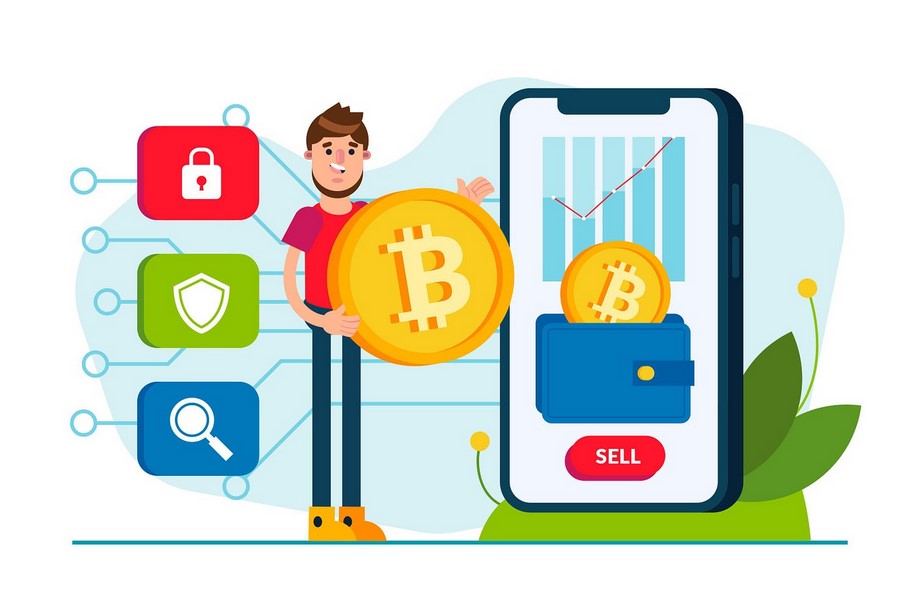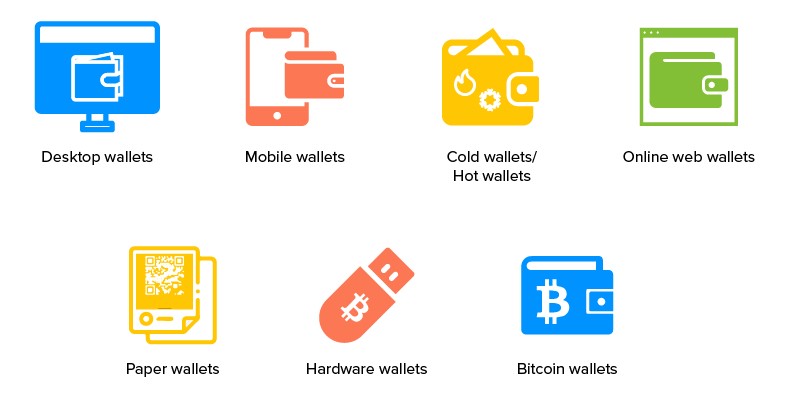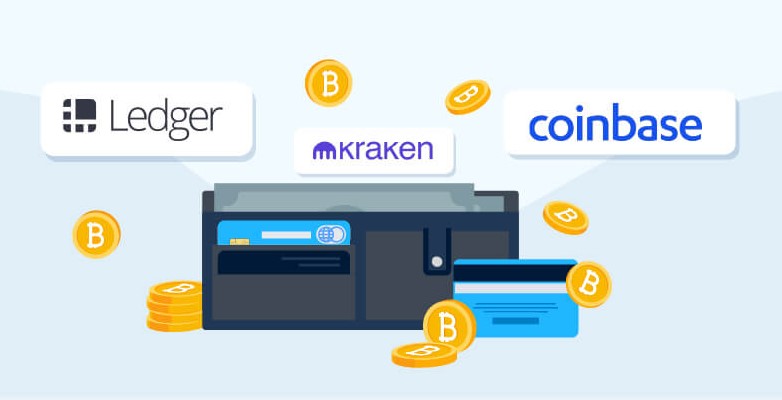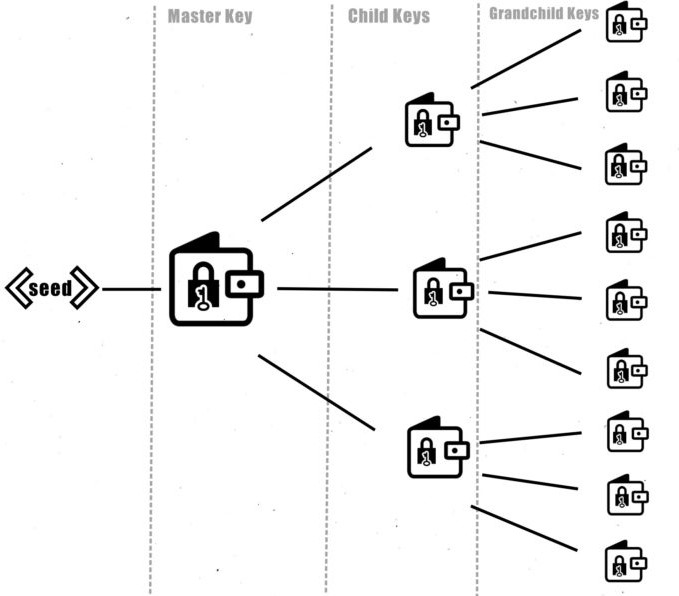Welcome to the future of finance! A world where traditional banks are replaced by digital wallets and hard cash is superseded by cryptocurrencies. Our journey today will guide you through a maze of Bitcoin and crypto wallets, the vaults that guard your digital treasures in this fast-paced, innovative landscape. As mysterious as it sounds, these virtual wallets are becoming an essential part of our everyday life, offering an exciting blend of security, accessibility and limitless potential.
This article will explore some of the best Bitcoin and crypto wallets available in today’s market. Whether you’re a seasoned blockchain investor or a curious novice looking to dip your toes into the oceanic world of cryptocurrency, we’ve got something for everyone. So gear up as we embark on this exploration that could potentially revolutionize how you handle money; welcome aboard!
Understanding Bitcoin and Crypto Wallets
A Bitcoin or crypto wallets are essentially a digital wallet that allows users to manage their cryptocurrencies. It works similarly to a bank account, where you can send and receive digital currency, monitor your balance, and conduct other transactions. However, instead of storing physical money, it stores the private keys (secure digital codes known only to you and your wallet) necessary to access your cryptocurrency addresses and carry out transactions.
Crypto wallets can be online (web-based), offline (hardware or paper wallets), mobile (smartphone apps), or desktop (downloaded and installed on PCs). Each type has its own security measures and features, so it’s essential for users to understand these aspects before choosing a wallet. For instance, hardware wallets are considered the safest as they store your private keys offline away from potential internet hackers.
The key thing to remember about Bitcoin and crypto wallets is that they don’t actually store your coins in the way a physical wallet would hold cash. Cryptocurrencies exist as records on a blockchain, but what your wallet holds are the secure digital keys used to sign transactions. So when we say Bitcoin is stored in my wallet, we actually mean the private key is stored there.
Types of Crypto Wallets Overview
Crypto wallets are essentially digital wallets that allow users to store, send, and receive cryptocurrencies. There are several types of crypto wallets available, each with their own unique features and security levels.
The first type is a software wallet, which can be further divided into three categories: desktop, mobile, and online. Desktop wallets are downloaded and installed on a PC or laptop and they can only be accessed from the device where they were downloaded. Mobile wallets run on an app on your smartphone, making them very convenient. Online wallets run on the cloud and can be accessed from any computing device in any location.
Another type is a hardware wallet, which stores the user’s private keys on a hardware device like a USB. Despite being offline most of the time (which makes them extremely secure), hardware wallets are able to make online transactions. Lastly, there are paper wallets which involve printing out your cryptographic keys and storing them in a safe physical location. They are easy to use but can be risky if the paper is lost or damaged.
HD Wallets: Advantages and Limitations
HD Wallets, short for Hierarchical Deterministic wallets, have emerged as a preferred method for managing multiple Bitcoin and crypto wallet addresses under one master seed. One of their major advantages is the convenience they offer. Unlike traditional wallets where each key pair must be separately backed up, an HD wallet allows you to secure your entire flock of addresses by merely backing up a single, master seed sequence. Such simplicity not only streamlines the management process but also significantly beefs up security.
Despite the array of benefits, HD Wallets aren’t without limitations. The primary drawback revolves around privacy concern – while it’s harder to associate transactions with users as new public keys are generated automatically for every new transaction with this technology; if any part of that tree structure falls into wrong hands, they can trace back all your transactions and develop a cohesive chain of your financial activities. Therefore it requires users to be just as diligent in securing their master seeds as they would be with individual private keys.
Software Wallets: Why They’re Popular
Software wallets have generated a lot of buzz in the cryptocurrency community, and for good reason. These virtual receptacles are not just about storing and transacting digital assets securely, but they also embody convenience and ease-of-use that traditional banks can’t rival.
The popularity of software wallets can be attributed to their simplicity and accessibility. They blur the lines between advanced technology and user-friendliness, making it possible for anyone with internet connectivity to adopt cryptocurrency. What’s more, they usher in an unprecedented level of financial independence and privacy – no third-party interferences or regulatory apprehensions. In these disruptive times, embracing a tool that caters to such volatility might just be a forward-thinking move after all!
Hardware Wallets: Pros, Cons, and Recommendations
Hardware wallets, often referred to as cold storage, provide an elite level of security for your cryptocurrency. They are physical devices similar to a USB drive, which store the digital currency completely offline and away from potential online threats. The allure lies in their ability to secure cryptocurrencies by keeping private keys hidden within the device, thus making them inaccessible to hackers.
However, they’re not without drawbacks. Unlike software wallets that offer speedy transactions and accessibility across different devices, hardware wallets can be inconvenient due to necessary physical access for any transaction. Additionally, if you lose the device or forget your pin, retrieving your funds can get complex and challenging.
For new entrants in cryptocurrency investment spectrum or casual investors looking for maximum security without needing frequent transactions could consider Trezor or Ledger. Both these brands offer top-notch security features collectively with user-friendly interfaces ideal for beginners. For veteran cryptonauts requiring intricate features and advanced options might appreciate Coldcard’s nuanced navigation systems.
Mobile Wallets: Convenience on the Go
In a digital age where convenience reigns supreme, mobile wallets have emerged as the new commanders of this realm. They’ve taken center stage in defining Convenience on the Go, especially in the Bitcoin and Crypto world. With just a few taps on your smartphone, you can conduct transactions, pay bills or make investments no matter where you are – all that’s needed is an internet connection!
 Mobile wallets not only boast incredible user-friendliness but also equip users with unprecedented control over their crypto assets. Imagine being able to monitor real-time fluctuations of your treasured Bitcoins right at your fingertips or carrying out peer-to-peer transactions without having to navigate through complex banking procedures – it’s financial liberation every modern money-maven yearns for! It’s clear that mobile wallets are reinventing our relationship with money, adding a layer of delightfully straightforward sophistication to personal finance management.
Mobile wallets not only boast incredible user-friendliness but also equip users with unprecedented control over their crypto assets. Imagine being able to monitor real-time fluctuations of your treasured Bitcoins right at your fingertips or carrying out peer-to-peer transactions without having to navigate through complex banking procedures – it’s financial liberation every modern money-maven yearns for! It’s clear that mobile wallets are reinventing our relationship with money, adding a layer of delightfully straightforward sophistication to personal finance management.
Security Tips for Managing Crypto Wallets
One of the most vital steps in managing crypto wallets securely is to keep your private keys private. These keys are what you use to sign transactions and access your cryptocurrency, so they should never be shared with anyone. It’s also recommended to store them offline or in a hardware wallet, which keeps your keys out of reach from online hackers.
Secondly, always use two-factor authentication (2FA) when available. This adds an extra layer of security by requiring you to verify your identity through a second device or method before accessing your wallet. Regularly updating your wallet software can also help protect against potential vulnerabilities.
Lastly, be wary of phishing attempts. Always double-check that the site you’re using is legitimate and not a fake platform designed to steal your information. Avoid clicking on suspicious links and always confirm the source before downloading any crypto-related apps or software.
Types of Bitcoin and Crypto Wallets
Bitcoin and crypto wallets come in several types, each with its unique features, benefits, and drawbacks. The most common types are software wallets, hardware wallets, mobile wallets, web wallets and paper wallets.
 Software wallets are applications that can be installed on your computer or mobile device. They provide full control over your cryptocurrencies but also require you to take care of their security. Hardware wallets are physical devices similar to a USB stick that store your private keys offline. They are considered one of the safest options as they are immune to online threats.
Software wallets are applications that can be installed on your computer or mobile device. They provide full control over your cryptocurrencies but also require you to take care of their security. Hardware wallets are physical devices similar to a USB stick that store your private keys offline. They are considered one of the safest options as they are immune to online threats.
Mobile wallets are apps on your phone that allow for quick transactions through QR code scanning. Web or online wallets run on the cloud and can be accessed from any computing device in any location. While they provide convenience of access, they also have an increased vulnerability to hacking attempts. Paper wallets involve printing out your public and private keys on a piece of paper which is then stored securely. This type provides a high level of security since the keys aren’t stored digitally anywhere, making them immune from cyber attacks or hardware failures.
Top Rated Bitcoin and Crypto Wallets
There are several top-rated Bitcoin and crypto wallets that offer a combination of security, ease of use, and features.
One of the most popular is Coinbase Wallet. It supports Bitcoin, Ethereum, Litecoin and many other coins. Coinbase’s wallet also has a great user interface that is easy for beginners to understand. Another highly rated wallet is the Trezor hardware wallet. This cold storage device offers an extremely high level of security for your cryptocurrencies and supports over 1000 different types of coins.
For mobile users, Trust Wallet is a top choice. This app not only provides a secure place to store your cryptocurrencies but also allows you to earn interest on your holdings, trade crypto, and access decentralized applications (DApps). It’s worth noting though that the best wallet depends largely on individual needs and preferences including factors like what type of cryptocurrency you’re dealing with, how often you plan to transact, and what level of security you require.
Key Features to Look for in a Wallet
One of the primary features to look for in a wallet is its size and layout. Depending on your needs, you might want a compact, slim wallet that can easily fit into your pocket or a larger one with more compartments for cards, cash, and coins. Some wallets even have a clear window for an ID card or driver’s license. The layout should be user-friendly and organized so you can quickly find what you need.
Another crucial feature is the material and durability of the wallet. Genuine leather wallets are often highly durable and stylish but can be expensive. Synthetic materials are usually more affordable and come in various colors and patterns. However, they may not last as long as their leather counterparts. Lastly, consider security features such as RFID blocking technology if you carry credit cards with chips to protect your information from theft.
Lastly, aesthetics matter too. Choose a design that matches your personal style and makes you feel good when using it every day. Whether it’s classic black leather or a colorful patterned fabric, your wallet should represent your personality while still being functional.
How to Secure Your Crypto Wallet
Securing your crypto wallet is crucial to prevent unauthorized access and potential loss of your digital assets. The first step in securing your wallet is by creating a strong password. It should be long, unique, and difficult for others to guess. You can use a combination of uppercase and lowercase letters, numbers, and special characters to make it stronger.
In addition to a strong password, enable two-factor authentication (2FA) on your wallet. This adds an extra layer of security as it requires you to provide two types of identification before accessing your wallet. Furthermore, regularly update your wallet software as updates often include security enhancements. Lastly, consider keeping the majority of your cryptocurrency in an offline cold storage or hardware wallet which are less susceptible to online threats such as hacking or phishing attacks.
Conclusion
In conclusion, choosing the right Bitcoin and crypto wallet largely hinges on your personal needs and how you plan to engage with cryptocurrency. If maximum security is your goal, a hardware or paper wallet might be perfect for you. Alternatively, if convenience, ease of use, and quick access to the market are more important factors in your decision-making process, software wallets or exchange-provided wallets may be better suited to meet your needs.
No matter which path you choose in selecting a digital wallet for your precious assets, recognize that as the world embraces blockchain technology powerfully overtime each choice will have its advantages and potential downsides. The arena of cryptocurrency is constantly evolving; thus adaptability becomes key. So keep learning and growing alongside it because tomorrow may present an entirely new wallet option that’s just perfect for you.


